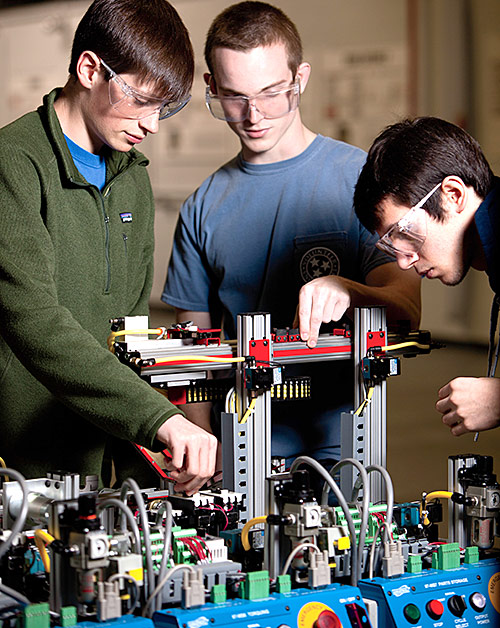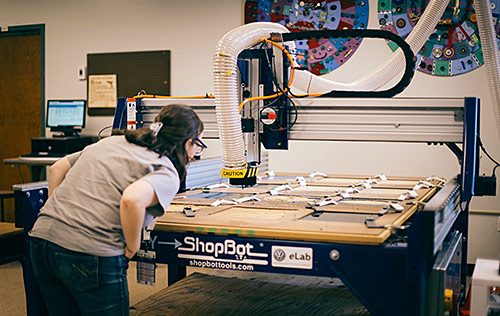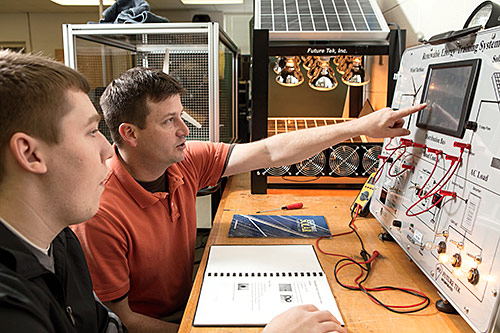Tennessee is certainly not alone in watching the evolution of workforce needs with concern. A lot of the best jobs of the future will require more education and training than many people bring to the table, and that’s true all over.
What makes Tennessee different is the way in which the state has acknowledged the significant challenge and set about tackling it honestly and comprehensively. Its solutions are starting to bear fruit, even as initiatives continue to expand.
The overall goal is known as “Drive to 55,” which refers to the aim of equipping 55 percent of Tennesseans with a college degree or certificate by 2025. Half a dozen years ago, economic development leaders arrived at the target after finding that education was an ever-increasing topic of interest in their conversations. At the time, just 32 percent of Tennesseans could meet that standard.
As the old wisdom goes, one must acknowledge a problem in order to find a solution. “You can’t address it if you don’t see it,” says Ann Thompson, director of Workforce Development with the Tennessee Department of Economic and Community Development.
Free Postsecondary Education
At the center of the solution are two complementary programs called Tennessee Promise and Tennessee Reconnect. Tennessee Promise is last-dollar scholarship funding designed to ensure that all Tennessee high school graduates can have two years of tuition-free education at any of the state’s 13 community colleges or 27 colleges of applied technology. In order to receive the scholarship under Tennessee Promise, students must meet all deadlines and requirements, including maintaining full-time enrollment (a minimum of 12 hours per semester), achieving a 2.0 GPA, and completing eight hours of community service prior to each semester of enrollment.
Tennessee Reconnect, meanwhile, essentially extends that promise to cover all Tennessee adults wishing to go to college for the first time or return to finish a degree. Says Thompson, “Tennessee is the first state to promise free postsecondary education literally to anyone.”
The first Tennessee Promise cohort entered postsecondary school in the fall of 2015; by the fall of 2017 the state declared a success rate of 52.5 percent — that’s the percentage that either earned a degree or certificate, transferred to a four-year college, or were still enrolled after five semesters. They earned degrees or certificates at a significantly higher rate than a similar group that entered school a year before the program was launched.
In announcing those results, Dr. Flora W. Tydings, chancellor of the College System of Tennessee, noted that the Tennessee Promise seems to be doing just what was intended: “getting more students into college who might not otherwise be able to attend, helping them advance toward degrees, and increasing the number of Tennesseans with the college credentials they’ll need for the modern workforce.”
That said, success is a work in progress, Thompson observes. “We do a great job getting people into school and a pretty good job getting them through,” she says. There’s still the matter of getting them into jobs, and there’s still work to be done there. With that in mind, she says, the state is focusing on helping employers learn to take advantage of Tennessee Promise and Tennessee Reconnect in their recruitment and retention efforts. “How can a company utilize this as an opportunity to provide some kind of benefit?”

There are plenty of examples of ways the state and its employers have partnered to make positive things happen for companies and employees alike. For example, three big auto-related employers — Nissan, Volkswagen, and Bridgestone — have each partnered with Tennessee colleges of applied technology to ensure better-prepared workers.
Last year, Tennessee College of Applied Technology-Murfreesboro and Nissan North America started accepting students at the Smyrna Campus and Nissan Training Center. It’s a 162,000-square-foot technical training center that provides students, as well as current Nissan employees, the latest skills in advanced manufacturing and other areas. Volkswagen and Bridgestone, meanwhile, partnered to create mechatronics programs — Volkswagen’s with Chattanooga State Community College and Bridgestone’s with Motlow State Community College.
Then there are the new Volkswagen eLabs — state of the art digital fabrication studios in Hamilton County public schools that engage students in engineering and environmental learning experiences. The eLabs provide students with unparalleled access to rapid prototyping technologies including CNC routers, laser cutters, vinyl cutters, 3D printers, and micro-electronics. Students leverage design thinking strategies and engineering design principles to develop functional prototype solutions to real problems. To this end, teachers work to use Volkswagen eLabs to embed a growth mindset that empowers students as self-directed learners with a jumpstart toward workforce readiness. “It really gets the kids excited about manufacturing,” Thompson says.
The ability to partner with the College of Applied Technology in Morristown for training was one factor that helped attract a Belgian bus maker named Van Hool to Morristown. That’s a 640-job deal. And Northeast State Community College operates the Regional Center for Advanced Manufacturing, which offers a registered apprenticeship program that’s a turnkey solution to help employers meet workforce development needs.
Apprenticeships, Thompson says, are “part of the culture and fabric” in that part of the state. “It’s a great way to train the workforce and also recruit and retain. But developing an apprenticeship program takes a lot of time and money.” The Regional Center for Advanced Manufacturing solves that issue with its apprenticeship program.

One more tool in the workforce development toolkit is the annual LEAP Report. Through the Labor Education Alignment Program (LEAP) $20M is provided to local collaboratives to address workforce challenges and design solutions utilizing multiple agencies, local and state.
Together, programs such as these form a web of support for workforce development, serving Tennessee residents and employers alike and ensuring ongoing economic growth. Gov. Bill Haslam, who is wrapping up his time atop state government, sees education as his legacy. In his final State of the State address this past January, Haslam said the Drive to 55 goal is well on its way to happening. “In fact, if we sustain our current momentum, we are on pace to meet the Drive to 55 goal two years early.”




